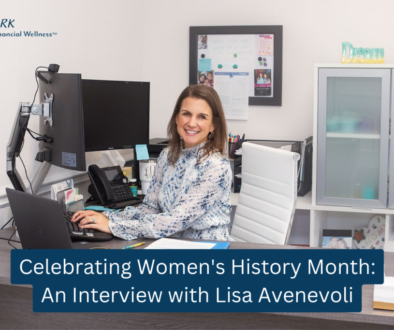Changing Jobs: What Happens to Your 401K?
There’s a lot involved in moving to a new company, and normal for some to put some of the more tedious housekeeping items on the back burner. Besides all the job-related changes, you need to understand your new health insurance and set up your new 401(k) to continue your annual contribution.
But what happens to your old 401(k)? It stays where it is for many people, and they end up with multiple 401(k) accounts. There may be some benefits if the old plan offers investments that you prefer to keep or provide diversification from the new plan. However, it can also make record-keeping onerous, and it can become challenging to understand your accurate risk exposure.
A better approach is to understand your options and make the best decision based on your tax status and the rest of your financial plan.
The Options for 401(k) Portability
You generally have four options for the vested assets in your 401(k) plan. Many employers allow you to leave the plan where it is. However, any unvested assets won’t continue on a vesting schedule. Vesting ends with your termination date, so your plan balance will be the amount you’ve contributed, any employer contributions that have vested, and any growth of the investments.
There are three main options when it comes to portability:
- If you decide to roll the plan over, you may be able to transfer the assets directly to your new employer’s plan if they accept transfers. This is straightforward. It’s called a “direct transfer,” and the amount you have invested rolls over intact, with no taxes deducted, if the old plan administrator makes the check payable to the new plan.
- If the check is made payable to you, it’s called an “indirect rollover,” and the old plan will deduct taxes. You have 60 days to deposit the amount (along with any additional funds to make up for the taxes that were withheld) into your new plan. You may see this as an opportunity to make a short-term loan to yourself, and there are some circumstances where it might work – but it can be costly from a tax standpoint. If you miss the window and don’t contribute the funds to your new plan, you’ll get hit with penalties if you’re under 59 ½. Taking money out of your plan may also mean you fall short on retirement goals.
- The final option is to cash out. At least 20% of taxes will be withheld, and you’ll get hit with a 10% penalty at tax time if you are under age 59 1/2. The extra income may also bump you into a higher tax bracket.
Creating Diversification
Thinking about your 401(k) investments as part of your comprehensive financial plan can help you create enhanced diversification. Take a careful look at the plan choices offered in each plan. You may decide that you can craft a more diversified strategy by keeping both plans. You could replicate your risk strategy in each or set up a new strategy by selecting different asset classes and funds in each that create a total risk profile you are comfortable with. Or you may prefer the investments offered in the new plan and choose to simplify your strategy by keeping everything in one place.
If you are invested in a target-date fund, you may want to consider the rollover. The two funds may have the same target date, but the risk profile can differ from plan to plan. It’s hard to get a sense of what you are holding, so it may be beneficial to roll over the assets and consolidate them into one target-date fund.
An Opportunity for Tax Planning
If you have been out of work for some time and have lower income, it may make sense to do a Roth conversion. Pulling money out of your 401(k) to convert it while you are still working doesn’t usually make sense because it can create a costly tax burden, so investors typically wait until early retirement.
There are income limits on employer-sponsored Roth 401 (k) accounts, but you can convert to a Roth IRA without any income limitation. You’ll need to pay the taxes you deferred when you contributed to the traditional 401(k) account, plus the growth of the investments will also be taxed. But once you pay the taxes and deposit the funds into the Roth IRA, they grow tax-free, and you will not be subject to required minimum distributions starting at age 72.
This can be a significant advantage for income planning in retirement, as it may help keep you in the lower tax brackets.

The Bottom Line
Thinking through your 401(k) rollover strategy should be part of the financial housekeeping you do when you join a new company. Understanding what you have and your risk profile can provide you with assurance during market volatility. It also ensures you stay organized. There are many options, so investing the time to identify what is right for you makes good sense.
Here at ARK Financial Wellness, we will help you make the right decision for you and your family. As fiduciary financial advisors, we are legally and ethically bound to have your best interest in mind. Get started with a no cost, no obligation consultation today!
Conclusion
Maximizing your money requires discipline and a commitment to your financial goals. Remember, the key to maximizing your money is to be intentional with your spending and to make your money work for you. Keep in mind that achieving your financial goals takes time and effort, but with the right mindset and habits, you can achieve the life you want.
Disclaimer:
This work is powered by Advisor I/O under the Terms of Service and may be a derivative of the original.
The information contained herein is intended to be used for educational purposes only and is not exhaustive. Diversification and/or any strategy that may be discussed does not guarantee against investment losses but are intended to help manage risk and return. If applicable, historical discussions and/or opinions are not predictive of future events. The content is presented in good faith and has been drawn from sources believed to be reliable. The content is not intended to be legal, tax or financial advice. Please consult a legal, tax or financial professional for information specific to your individual situation.

This content not reviewed by FINRA
ARK Financial Wellness, LLC is an independent firm with advisory services offered through Blackridge Asset Management, LLC, a Registered Investment Adviser. Blackridge Asset Management is an SEC Registered Investment Advisory Firm.
ARK’s YouTube Videos
SECURE Act 2.0 Highlights
What is the SECURE Act? Lisa shares a brief summary of what it is, what the original bill included and how the changes in the SECURE Act 2.0 can help you save for a more successful retirement.
Click here to check out our blog post on this topic.
How to Start Out on the Right Foot in 2023
Lisa shares some questions to ask yourself and your loved ones which will help you to grow financially and personally in the new year.
What is a Fiduciary?
Lisa talks about what a fiduciary is and why its so important to work with someone who is held to a fiduciary standard when it comes to managing your money.
Read more about our Fiduciary Commitment here.
The Financial Future is Female
Traditionally, men have handled the finances. But at ARK, we are finding that more and more women, regardless of their relationship status- Single, married, divorced, widowed – are making the big financial decisions and are managing the day-to-day finances. Watch this video to learn more about the unique challenges and the many opportunities that women have when it comes to our finances. Check out the blog post on this topic also.
Planning for Your Future…and for Your Today
We find that clients sometimes struggle with doing what is needed to save for their future needs and goals, but also having enough leftover to live for today. Watch this video to find out what it means to live for today.
How Much Should I be Saving and Spending at Age 40?
“Where should I be – financially – at age 40?” Or any age for that matter? We get this question a lot at client meetings. While Google and benchmarks can help you get started, they can’t give you the answers you need for your particular situation, lifestyle and goals. Watch more to get tips on how to save and spend your money wisely at any age!
Real vs Fake Financial Advisors
Set the bar high, and do your homework in seeking a Financial Advisor to aid in making crucial financial decisions for you and your family. Get a good understanding of their background, education, experience and services by using free online tools to help you differentiate real from fake Financial Planners/Advisors!
If you have more questions about this, visit our FAQs page.



